The best producing area of growing coffee beans in China the taste characteristics of Yunnan small grain coffee is sour and bitter.
There are Hainan coffee and Yunnan coffee in China, of which Yunnan is the largest coffee grower in China, the only production base of high-quality coffee raw materials in China, and the earliest place to grow coffee in Chinese mainland region. Perhaps, people do not know much about Yunnan coffee, only Yunnan Pu'er tea, but now there is almost Yunnan coffee in cafes. With the broadcast of the movie "getting Home at one o'clock", people have a better understanding of Yunnan coffee.
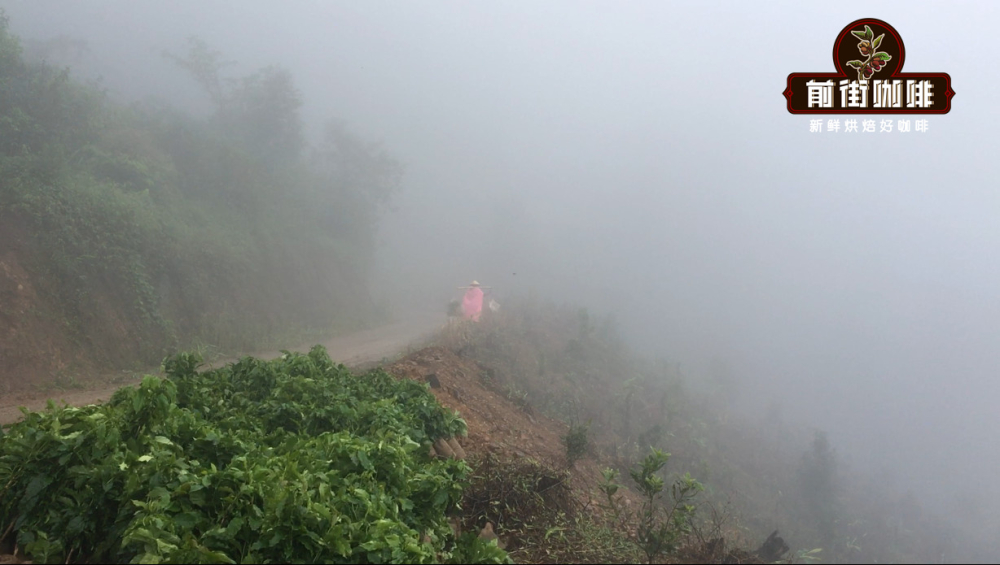
Yunnan is the largest coffee producer in China, although the production of coffee is slightly less than that of neighboring countries. But the quality of coffee is not inferior to that of coffee in other countries. The output of Yunnan coffee accounts for 95% of China's total coffee output, which is the main origin of Chinese coffee.
The coffee-growing area in Yunnan is located in the southwest of the province, just in the coffee gold growing belt, that is, between the Tropic of Cancer. The altitude is about 1000-2000 meters, the mountain topography is mostly, the mountain slope is big, the soil is fertile, farmers generally plant coffee trees on the hillside. Due to the abundant rainfall and sunshine in Yunnan, there is a significant temperature difference between day and night at high altitude. to sum up, it has formed very favorable soil conditions for planting coffee trees. These conditions provide a very good environment for growing coffee in Yunnan. With the gradual change of people's concept of coffee, Yunnan now attaches great importance to the quality of coffee and slowly begins to step into the high-quality stage.
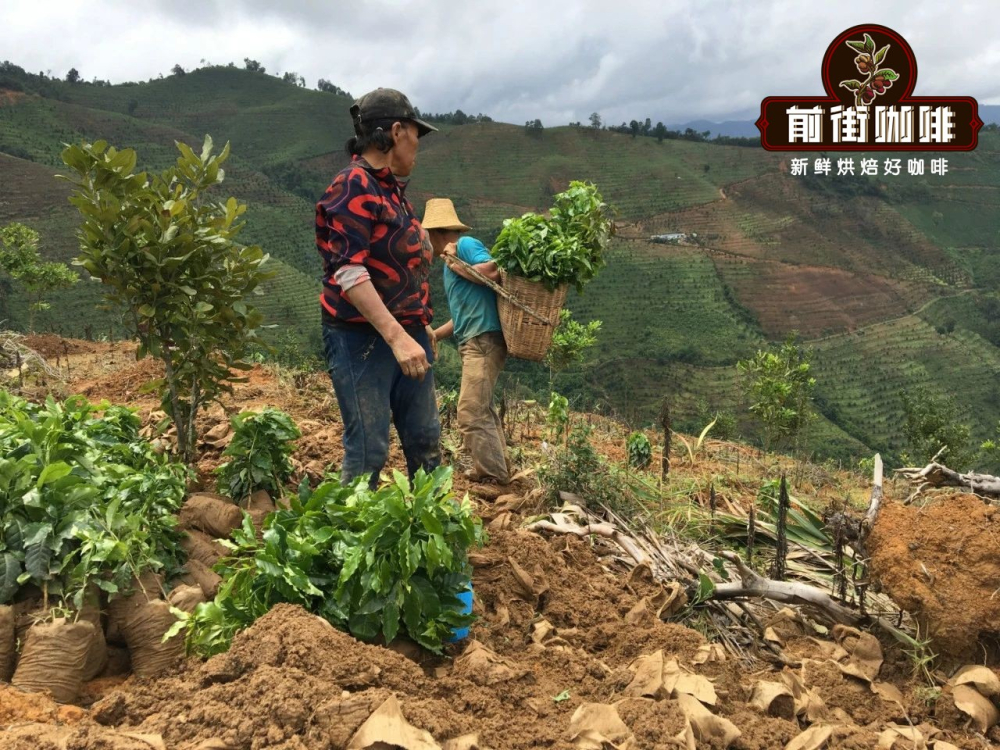
Small grains of coffee are not unique to Yunnan. Coffee is basically grown in places all over the world. Now we can see small grains of coffee everywhere on the street, but today's merchants will use its other name more often-Arabica coffee.
Yunnan's "small grain coffee" is actually what people often say in the market, "Arabica coffee". It's just that the calling habits are different. All Arabica originated in Africa, then developed by Arabs, and finally spread to America or Asia.
Yunnan small grain coffee, in terms of taste, is relatively neutral, neither too sour nor too bitter, is really fragrant but not bitter, strong but not strong, slightly sour and comfortable coffee, but also more in line with the taste of the public.
Yunnan small grain coffee varieties
Yunnan small grain originally got its name from the iron card, because the iron card seed is the Arabica small seed. The oldest variety of coffee in Yunnan is the tin card. Later, Nestl é settled in Yunnan, because of the poor disease resistance of the iron pickup, but also in order to increase the output of coffee beans, coffee farmers cut down the iron pickup coffee trees with good flavor to plant varieties with poor flavor but good disease resistance and high yield. S288, which is resistant to leaf rust, was initially introduced, and later Katim, which had a higher yield, was introduced. In other words, the coffee trees planted in Yunnan are mainly Katim varieties, and Yunnan small-grain coffee is Katim coffee.
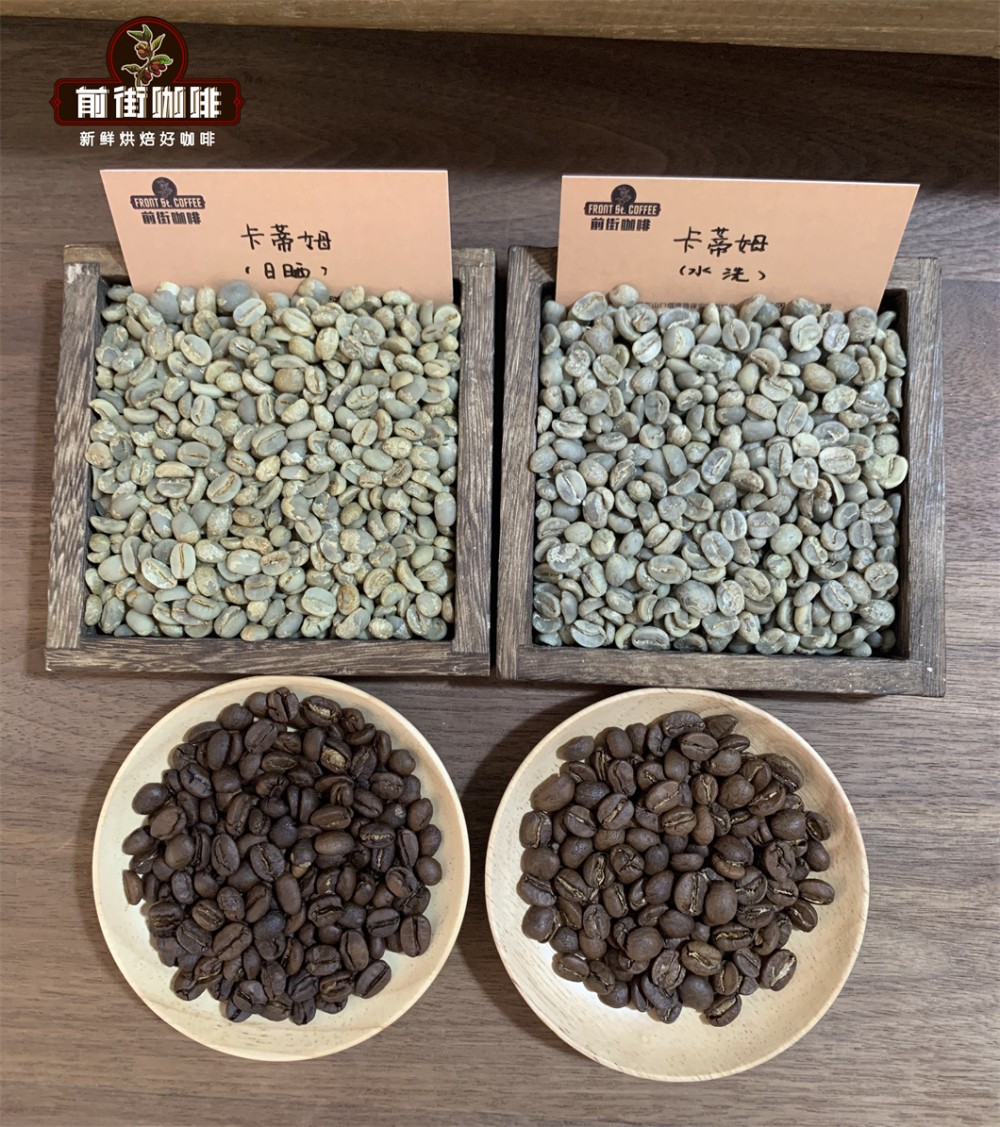
"small grain" refers to the smaller Arabica variety of coffee, compared with Hainan's medium-grain robusta coffee beans. Yunnan originally introduced two pure Arabica species, the iron pickup and the bourbon, and the ancient iron pickup is recognized as a high-quality variety. The famous Jamaican Blue Mountain Coffee is a kind of tin card, with rich aroma, delicate and diverse flavor, but the yield is very low, and it is vulnerable to rust, so more manpower management is needed. After all, coffee is a crop used by Yunnan farmers to make a living, and it is difficult to keep growing if the yield is too low to meet the income, so most Yunnan farmers choose to switch to a more productive variety: Katim.
Iron pickup (typica)
The most classic high-quality Arabica species, many commercial improved varieties are derived from this variety. It has excellent taste and is recognized as a boutique coffee variety, but its yield is very low and it is vulnerable to rust, so more manpower management is needed. Tieka Coffee, native to Ethiopia and southeastern Sudan, is the most widely cultivated variety of coffee in the Western Hemisphere. The plant is stronger, but not light-tolerant, and the yield is higher in Hawaii. The top leaf of the iron pickup is red copper, which is called red top coffee.
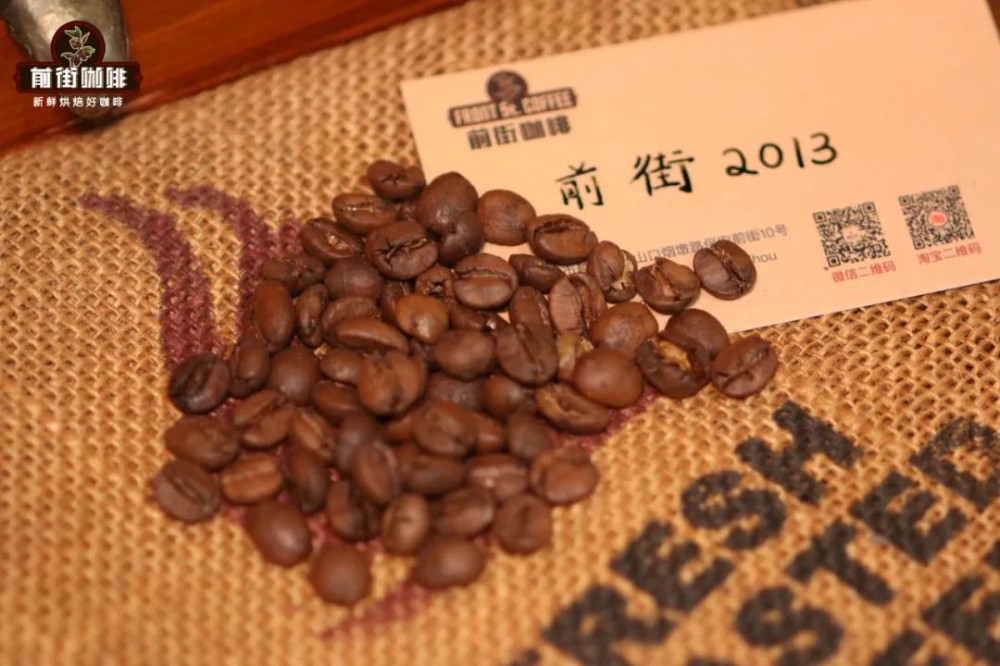
Katim.
At present, most of the coffee varieties grown in Yunnan are Katim, because the coffee trees of iron card varieties are vulnerable to coffee leaf rust, which leads to their low yield. So local farmers cut down the elegant variety of iron pickup and switched to Katim, which is more productive and resistant to coffee leaf rust.
In Han Huaizong's introduction to coffee producing areas in China in his book Fine Coffee, it is mentioned that in 1998, more than 90% of Yunnan coffee varieties were Katim.
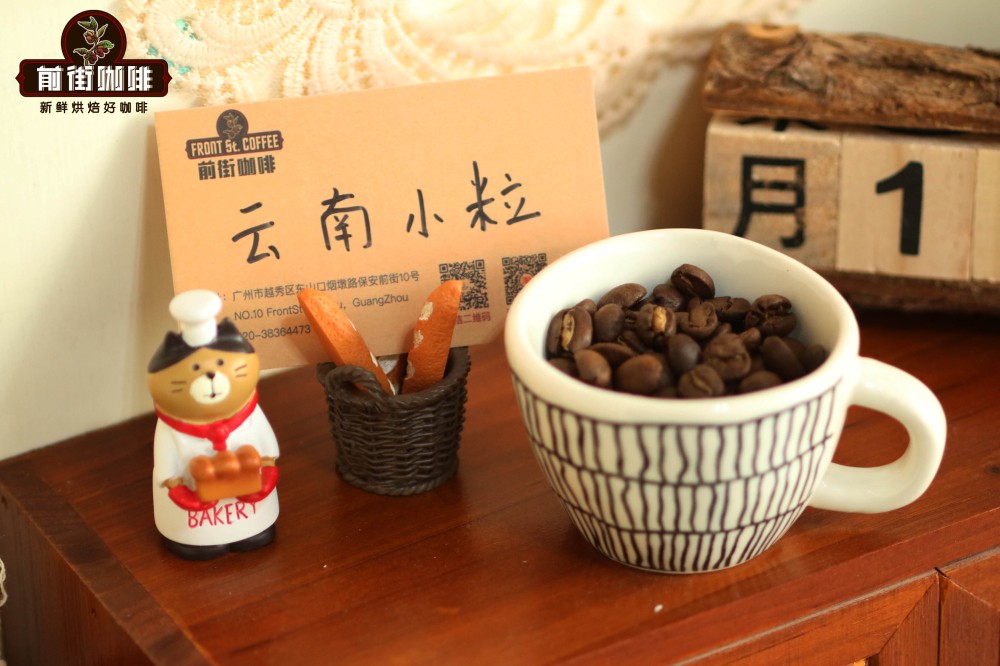
Katim is a new hybrid of Timor and Kaddura developed by the Portuguese coffee leaf rust research center CIFC in 1959. The Katim variety is characterized by high yield, short plant, close planting and good disease resistance. However, because the Katim variety carries the Robusta gene, its bitterness and fishy smell are more obvious than those of Arabica purebred, and have a slight disadvantage in cleanliness, fruit charm and richness. Robusta species has good resistance to leaf rust and rich oil, high yield and easy to grow. After crossing with Arabica tin card, Katim has 25% Robusta gene, which improves the resistance to leaf rust and retains rich oil. At the same time, it also has the rich taste of some tin card native species, so at present, most Yunnan manors have begun to plant Katim in a large area. The planting range of iron pickups began to shrink.
Main coffee producing areas in Yunnan
There are no four seasons in Yunnan, only dry season and rainy season, and the same is true in most coffee producing areas, which is the root cause of the use of tanning in some producing areas. June is the beginning of the rainy season in the producing areas, and it will rain for the next three or four months, which is the most favorable time for growing coffee. Only when seedlings are planted at this time and moistened by Rain Water for a few months will they be able to grow well-developed roots to survive the first half-year dry season.
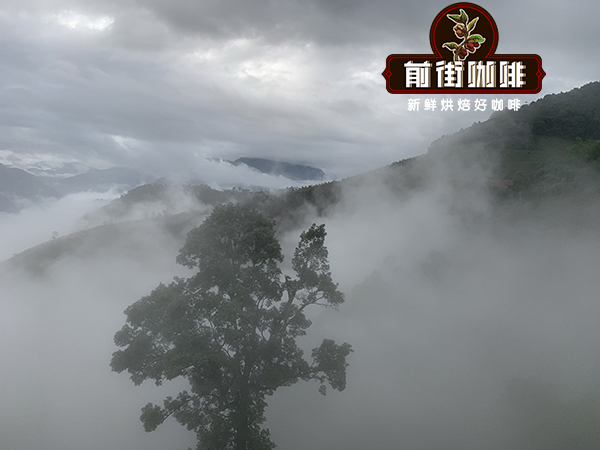
Yunnan small grain coffee 3-year-old 4-year-old fruit tree. Coffee is a short-day plant. Coffee has the characteristics of multiple flowering and concentrated florescence. The florescence of small seed coffee in Yunnan is from February to July, and the flowering period is from March to May. The flowering of coffee is greatly affected by climate, especially rainfall and temperature. Coffee flowers have a short life span of only 2-3 days. Small seed coffee usually opens at 3: 5 in the morning and blooms from 5 to 7 o'clock. The development time of coffee fruit is longer. It takes 8 to 10 months for the fruit of small seed coffee to mature, usually from October to December of the year. Rainfall has a great influence on fruit development, and climatic conditions directly affect fruit.
Yunnan is famous for growing coffee in several areas: Baoshan, Pu'er, Lincang and Dehong.
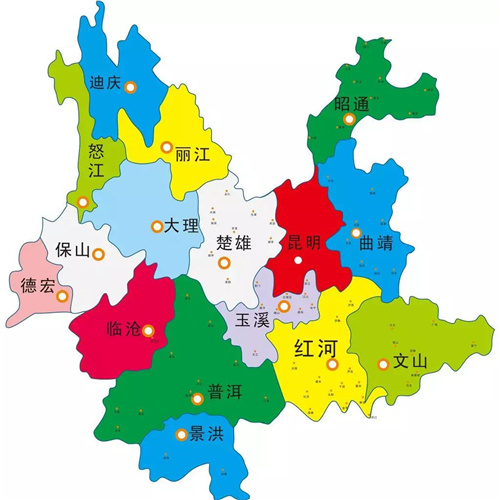
Lincang City belongs to the subtropical low-latitude plateau mountain monsoon climate, the topography is complex, is an area of various climate types. Mainly affected by the warm and humid air flow in the Indian Ocean and the southwest monsoon, the distinction between the four seasons is not obvious, but the dry and rainy season is distinct, Rain Water is more, the sunshine time is long, the annual average sunshine is more than 2000 hours, the frost period is relatively short, and there is no frost in some areas all the year round; the three-dimensional climate is obvious, and the annual average temperature in the mountain area is 13 degrees Celsius.
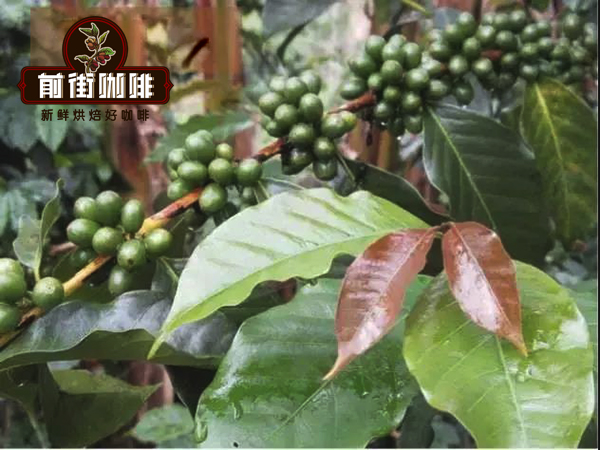
Qianjie Coffee has set up its own manor in Lincang, Yunnan Province. Then, before 2021, Street Coffee produced the first home-grown coffee bean-Qianjie 2013 Iron pickup Coffee. Qianjie Coffee took a fancy to this "green pearl on the border". In the early days of its establishment, Qianjie Coffee set up its own coffee farm in Lincang, one of the main coffee producing areas in Yunnan. growing the oldest Arabica variety-iron pickup.
Tea village Pu'er has cultivated coffee for 150 years. At the end of 1990s, Pu'er City began to cultivate coffee as a dominant backbone industry to adjust the industrial structure and increase farmers' income. Due to the influence of the subtropical monsoon climate, most of Pu'er is frost-free all the year round, cold in winter and hot in summer. The average annual temperature in Pu'er is 15 to 20.3 degrees Celsius, the annual frost-free period is more than 315 days, and the annual rainfall is 1100 to 2780 mm.
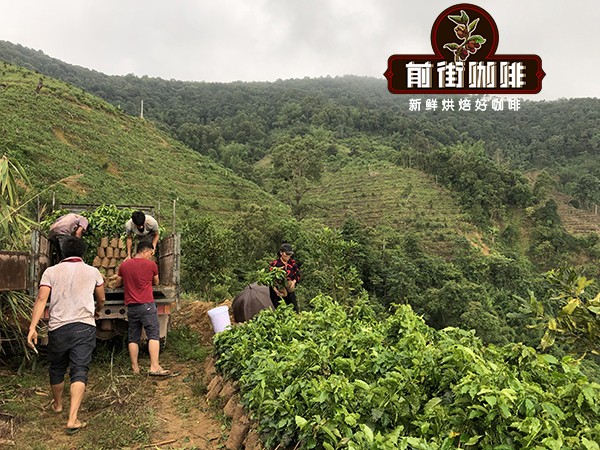
The cultivation of coffee in Baoshan began in the mid-1950s, and the first coffee seedling was introduced by the late patriotic overseas Chinese Mr. Liang Jinshan in Southeast Asia. In recent years, with the expansion of international trade, Lujiangba's small-grain coffee is more famous. Baoshan is a low-latitude mountain subtropical monsoon climate, because it is located in the low-latitude plateau, the topography is complex, forming a three-dimensional climate of "one mountain is divided into four seasons, ten miles different days". Baoshan area has a long history of growing coffee, which is recognized as the "best small-grain coffee producing area" and one of the coffee producing areas with good coffee quality in the country and even in the world. Most of them also grow Katim varieties.
The Yunnan small grains of coffee washed in front of the street comes from Baoshan.
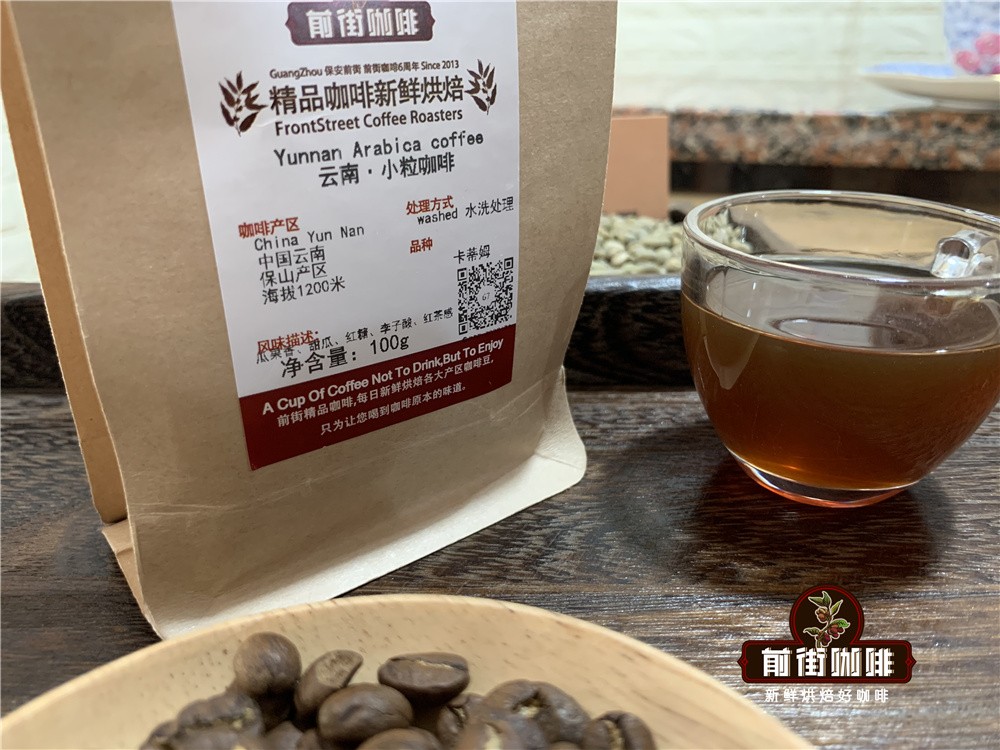
Dehong has the characteristics of no severe cold in winter, no heat in summer, abundant rainfall, hot and dry in the same season, small annual temperature difference, large daily temperature difference, short frost period and less frost days, which provides good growth and overwintering conditions for coffee trees. Quanzhou is close to the Tropic of Cancer and is located at low latitudes. Affected by the Indian Ocean southwest monsoon, it belongs to the south subtropical monsoon climate.
Yunnan coffee bean treatment method
Due to the perennial rainy season and unstable climate, most coffee beans in Yunnan are treated with water washing. But there are also sun-treated coffee beans. Katim on the front street has water to wash Yunnan small grains of coffee and suntan Katim coffee, and of course, there is iron pickup coffee in the front street of our Qianjie coffee farm on 2013.
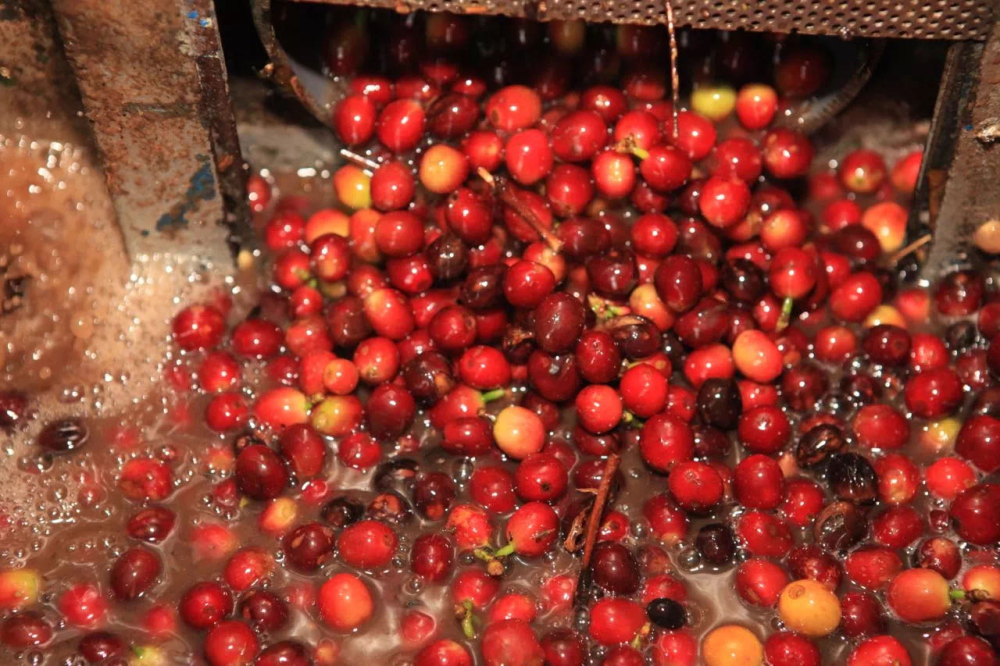
Parameters of Yunnan coffee brewed in Qianjie:
In order to retain the sweet and sour and tea characteristics of Yunnan coffee, Qianjie coffee roasted it moderately. V60 filter cup can be used when brewing, powder-water ratio at 1:15, medium grinding (about the size of coarse sugar / 75% screening rate of China 20 standard sieve), water temperature of 88 degrees.
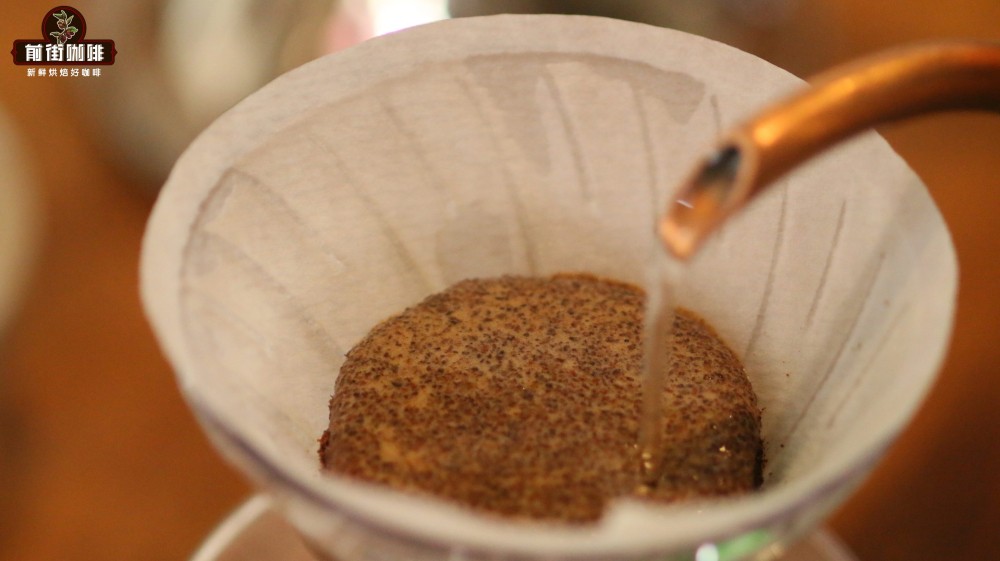
The use of segmented extraction, with twice the amount of coffee powder water for steaming, that is, 30 grams of water for 30 seconds, and the reason for the need for steaming process is to make coffee powder can discharge the internal carbon dioxide gas, so that the latter stage of the extraction is better stable. When the small water is injected around the circle to 125 grams, the injection will be stopped until 225 grams, then the filter cup will be removed after the dripping of the filter cup, and the extraction time will be 2 minutes 39 grams. Next, pick up and shake the whole cup of coffee, then pour it into the cup and taste it.
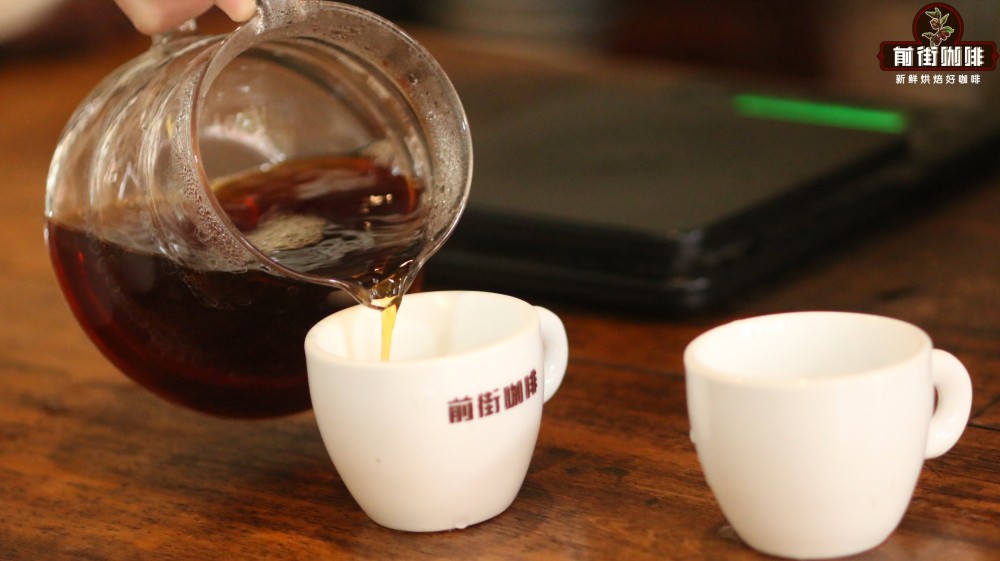
[Qianjie washed Yunnan small-grain coffee flavor] herbs, nutty aromas, chocolate, caramel, with a hint of acidity in the finish.
[Qianjie Yunnan Sunshine Katim Coffee] performance: nuts, chocolate, spices, caramel, plums.
Suggestions for making coffee in front of the street:
To brew a good cup of coffee, you still need to pay attention to the freshness of the beans. Qianjie has always believed that the freshness of coffee beans has a great relationship with the flavor of coffee, so the coffee beans shipped in Qianjie coffee are roasted within 5 days. The purpose of Qianjie roasting is "freshly roasted coffee", so that every guest who places an order is the freshest coffee when he receives it. The bean cultivation period of coffee is about 4-7 days, so when the guest gets it, it is the time when the flavor is the best.
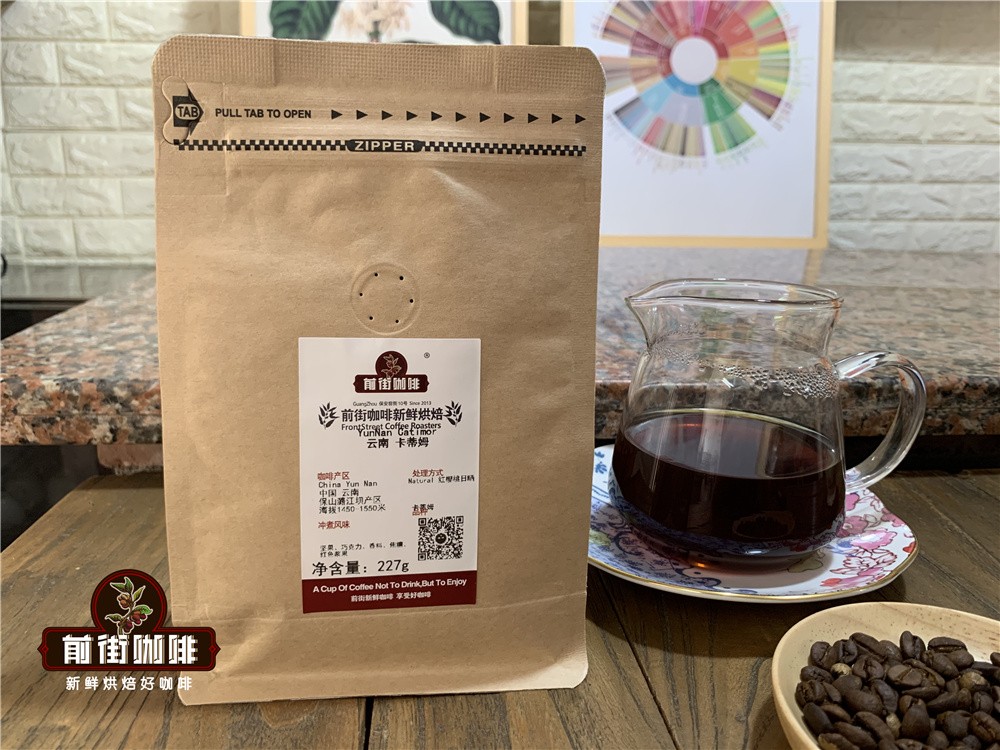
For those who need to be ground, Qianjie warmly reminds you that if the coffee beans are ground in advance, there is no need to raise the beans, because in the process of transportation, the pressure caused by carbon dioxide in the package can also make the coffee flavor round. so you can drink a cup of coffee as soon as you receive the coffee powder. But the coffee powder needs to be brewed in time, because the coffee powder oxidizes more quickly after contact with the air, that is to say, the flavor of the coffee will dissipate more quickly, and the flavor of the coffee is not so good. Therefore, Qianjie suggests buying whole beans, grinding and flushing now, so that we can better taste the flavor of coffee.
With the implementation of domestic products, Chinese coffee is gradually known and liked by everyone, while Qianjie likes Yunnan coffee, mainly because it is Chinese people's own coffee. In Qianjie, there are more than 50 individual coffees from different producing areas all over the world, and there are three kinds of Yunnan coffee: Yunnan washed small grain coffee, Yunnan Sun Katim Coffee and Qianjie Coffee Manor's Qianjie Iron pickup Coffee.
Professional coffee knowledge exchange more coffee bean information please follow the coffee workshop (Wechat official account cafe_style)
For more boutique coffee beans, please add private Qianjie coffee on Wechat. WeChat account: qjcoffeex
Important Notice :
前街咖啡 FrontStreet Coffee has moved to new addredd:
FrontStreet Coffee Address: 315,Donghua East Road,GuangZhou
Tel:020 38364473
- Prev
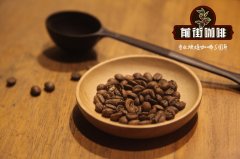
Yunnan coffee beans are of the best quality in China. The overall flavor of Yunnan coffee beans is mellow and sour.
Professional coffee knowledge exchange more coffee bean information please follow the coffee workshop (Wechat official account cafe_style) front street-Yunnan coffee introduction climate: within the Tropic of Cancer, the climate is relatively cool, frost-free in winter. In general, different varieties of coffee have slightly different requirements for light, and sometimes proper shading can even increase the complexity of coffee taste; rainfall: appropriate rainfall
- Next

Is the boutique coffee good? how about Ye Jia Xuefei? if you don't say it, you still think it's fruit juice.
Professional coffee knowledge exchange more coffee bean information please follow the coffee workshop (Wechat official account cafe_style) front street-Yega Xuefei introduction to Ethiopia, a highland country known as the roof of Africa, one of the least developed countries in Africa, one of the most populous landlocked countries, the only African country to defeat European colonial rule, and a major coffee supplier in the world
Related
- Beginners will see the "Coffee pull flower" guide!
- What is the difference between ice blog purified milk and ordinary milk coffee?
- Why is the Philippines the largest producer of crops in Liberia?
- For coffee extraction, should the fine powder be retained?
- How does extracted espresso fill pressed powder? How much strength does it take to press the powder?
- How to make jasmine cold extract coffee? Is the jasmine + latte good?
- Will this little toy really make the coffee taste better? How does Lily Drip affect coffee extraction?
- Will the action of slapping the filter cup also affect coffee extraction?
- What's the difference between powder-to-water ratio and powder-to-liquid ratio?
- What is the Ethiopian local species? What does it have to do with Heirloom native species?

